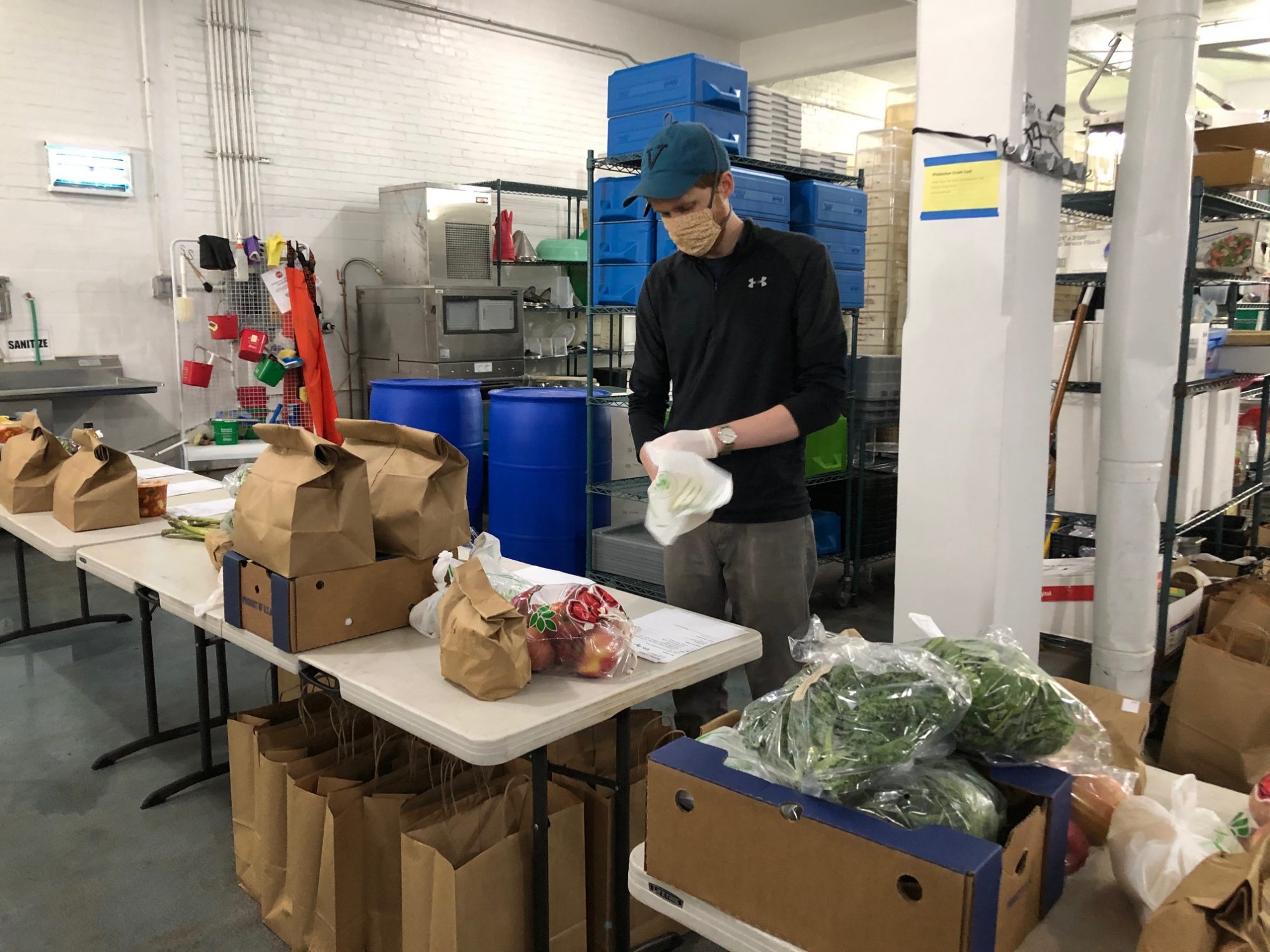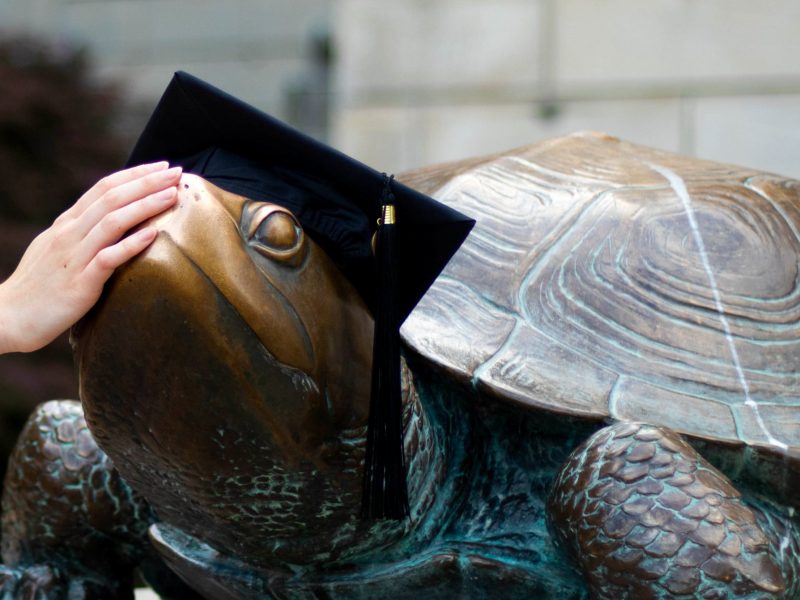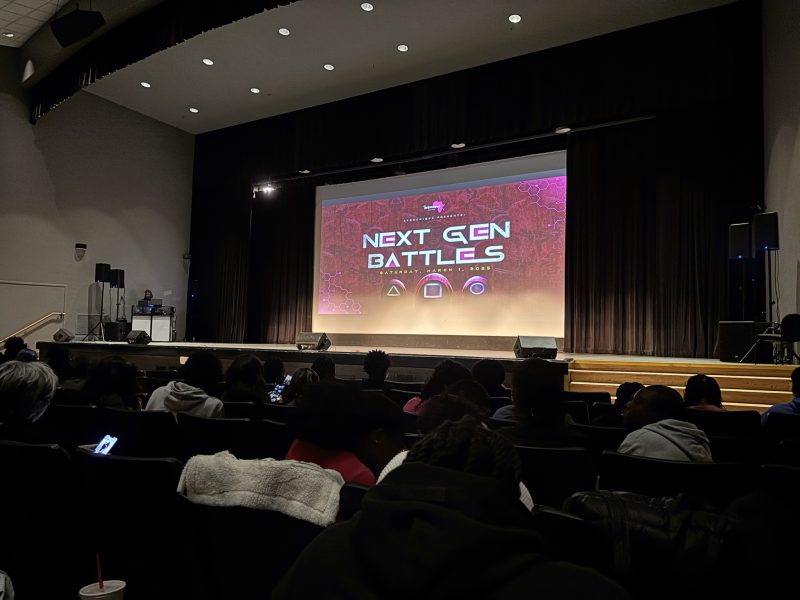A local pickle company delivered more than 900 orders last week, after it shifted away from holding stands at farmers markets to continue reaching customers during the coronavirus stay-at-home orders in Maryland, Virginia and Washington, D.C.
“I just drive around in my big van and fling pickles,” said Luca Dimambro, an anthropology and nutrition and food science major and Number 1 Sons pickle company employee.
The company started in 2012 when founders Yi Wah and Caitlin Roberts began making cucumber pickles and selling them at local farmers markets. As the business grew, they added sauerkraut, kimchi and hot sauces to the menu. The ingredients they use come from local farms, according to their website.
Stephanie Holliman, the Number 1 Sons communications manager, said the company began planning a strategy in March when it was apparent that business would be interrupted due to the coronavirus pandemic. She said they came up with the idea to partner with local farms and deliver groceries and produce to people’s homes. This way, they are maintaining their own business while supporting local farms.
“We have refrigerator space, we have vans, we have stacks, we have what we call the itty bitty pickle factory, but it’s enough floor space where we could quickly pivot ourselves into becoming kind of a hub for grocery deliveries,” said Holliman.
[Read more: Five films skipping the theater and coming straight to VOD]
And so, the itty bitty pickle factory suddenly became a crucial space where hundreds of grocery orders with vegetables, fruits, eggs and, of course, pickles are packaged each week.
Jack Irby, a production coordinator at Number 1 Sons, said he’s been working 10 to 15-hour days to organize and order any products they need.
On a typical day, Irby chops a lot of vegetables. For kimchi, Irby will start by slicing and salting Napa cabbage, then mixing it with an onion, garlic and ginger paste. He then puts the mixture in a barrel to ferment for a day. On Fridays — which Irby said are the busiest days — the team packs up orders for Saturday deliveries and market pickups.
“We’ve been super busy just trying to figure out how to handle this new challenge and get everything done,” Irby said. “There’s been a lot of long days and long nights working to get everything figured out.”
Holliman said it’s been overwhelming in a good way.
“We use the phrase a lot: community-centered commerce,” said Holliman. “We really believe in trying to establish and nurture a community around the products that we sell.”
Matthew Brandon, a junior bioengineering and plant science major, has been working at Number 1 Sons for a little over a year. Before the coronavirus outbreak, he worked at some of the company’s stands at 33 farmers markets in the area.
[Read more: I woke up earlier and earlier each day for five days. Here’s what I found.]
As the number of customers attending farmers markets began to dwindle, Brandon switched over to work mainly on deliveries.
“Having to adapt to this situation, I now have learned how to drive this huge delivery van through narrow streets in D.C.,” said Brandon.
Dimambro said that sanitation feels “more intense” than normal. He wears a mask and changes his gloves frequently. He also wipes down the inside of the van, the steering wheel and the door handles between drop-offs. He delivers to the Bethesda and Silver Spring areas and rarely sees the customers when he drops off a delivery, he said. However, when he does see them, the reactions are usually positive.
“People are really excited about it, and it’s really nice to see that it’s something that’s kind of helping out,” said Dimambro.
One customer, he said, typed a personal note in the delivery instructions box. The note explained that the customer was immunocompromised, so they were thankful Number 1 Sons was delivering.
“We were trying to keep that in perspective of how we can help our food communities, both our customers and the farmers that we know and work with, to make sure everyone is still able to get the food that they need and a better livelihood,” said Holliman.



